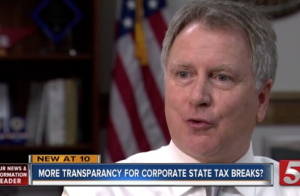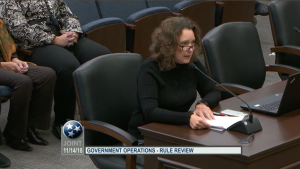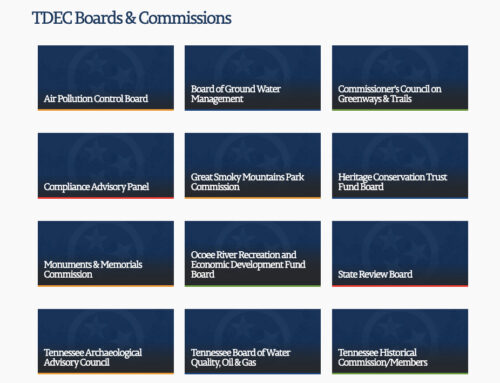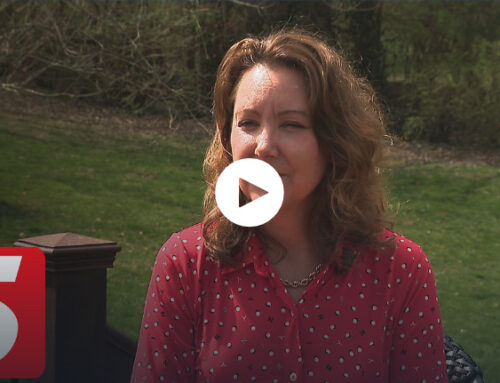Today is a bill filing deadline in Tennessee, so this list will be updated and most certainly will get bigger as we learn more.
The larger issue for TCOG will be caption bills, which open up parts of the Tennessee Code that are not part of the Public Records Act in Title 10, Chapter 7, and are not yet clear that they aim to close records. We hope to find out about these bills early in the process so that we can examine the language more closely. If you know of something, please let us know! We are happy to examine and vet legislation, and share our insight on how it might impact transparency.
But here is an early look of proposals that TCOG knows about.
The good news is that this year, there are several we support. Lower in the list are the ones that raise concern.
First, the good:
Review of existing exemptions
HB 86 / SB 167 We are supporting a recommendation that came out of the Open Records Ad Hoc Committee, chaired by Rep. Jason Zachary and Sen. Todd Gardenhire, that would set up an exemption review process of all existing 560-plus statutory exemptions. This bill is a caption bill for which Zachary and Gardenhire have said they are finalizing language. The committee’s proposal was to have the Joint Government Operations Committee, which meets year-round, to review all exemptions for those they need to be deleted, tweaked or updated.
Transparency of tax credits for economic development

State Sen. Kerry Roberts is interviewed about the bill by NewsChannel 5.
SB 513 / HB 1265 We are supporting a bill that would remove the exemption that makes tax credits awarded to businesses for economic development confidential. (See Tennessean story about the bill). Sen. Kerry Roberts, R-Springfield, is the Senate sponsor. State Rep. Andy Holt, R-Dresden, is the sponsor in the House.
Taking photos of public records

TCOG’s Deborah Fisher at a Joint Government Operations Committee meeting last year, advocating that people be allowed to take photos of public records.
SB434 / HB 2223 We support legislation that would make clear that government entities cannot ban a person from taking a photo of a public record while they are inspecting it, much like they would copy down by pen-and-paper what’s in the record. Sen. Mike Bell, R-Riceville and Rep. Jeremy Faison have this bill. It is a caption bill and language is being finalized.
Confidentiality agreements regarding public records
SB 478 / HB 665 We support legislation that affirms a government entity cannot enter into a confidentiality agreement that would make otherwise public records confidential. Sen. Todd Gardenhire, R-Chattanooga; Rep. Jeremy Faison, R-Cosby. This tracks with what the Tennessee Court of Appeals has said: “…a governmental entity cannot enter into confidentiality agreements with regard to public records. The idea of entering into confidentiality agreements with respect to public records is repugnant to and would thwart the purpose of the Act.” (Contemporary Media v. City of Memphis, 1999)
Fees paid by government entities to private entities
SB1292 / HB 370 We support language in the Tennessee Public Records Act that affirms that any fee or financial benefit paid or bestowed by a government entity to a business is public, and cannot be made confidential under an assertion by a private entity that the payment is proprietary or confidential business information or a trade secret. Rep. Martin Daniel, R-Knoxville, has filed the House version, and Sen. Mark Pody, R-Lebanon, has the bill in the Senate. It is of particular concern that some businesses have started to assert that government payments or the value of government land and buildings they receive in a PILOT (payment-in-lieu-of-taxes) agreement is confidential because it is a trade secret or proprietary information.
Protection of free speech about public affairs
SB 1097 / HB 777 We support legislation that strengthens free speech and other protections found in the First Amendment by allowing a judge to early dismiss litigation that clearly violate First Amendment rights. This is commonly referred to as an anti-SLAPP (Strategic Lawsuit Against Public Participation) law, which more than 30 states have. We are interested because it would protect someone from getting dragged into an expensive lawsuit because they made a true statement about government affairs, or expressed an opinion about government that someone thought made them look bad. This would discourage frivolous lawsuits that have little merit and stop people from using the courts to try to chill free speech. Sen. Steven Dickerson, R-Nashville, and Rep. Bob Ramsey, R-Maryville, are carrying the legislation.
Some legislative proposals that concerns us:
Allows government entity to sue public records requester
HB 626 / SB 590 – Allows a government entity to take a public records requester to court and get an injunction to stop a person from making public records requests if a government employee is “seriously abused, intimidated, threatened, or harassed.” Allows the court to require the requester to pay court costs and attorney fees associated with the lawsuit. Rep. William Lamberth, R-Cottontown; Sen. Ferrell Haile, R-Gallatin. Both lawmakers have asked for suggestions on the bill.
Makes 911 calls confidential
HB335 / SB 386 – Designates all 911 calls, recordings, and transmissions as confidential. Rep. Rick Tillis, R-Lewisburg; Sen. Shane Reeves, R-Murfreesboro.




